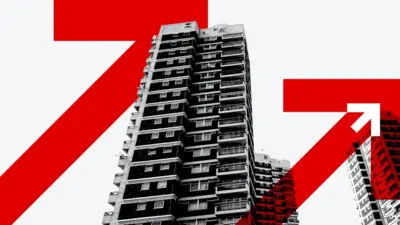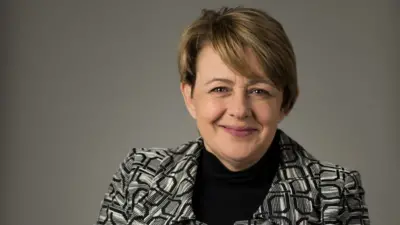We've updated our Privacy and Cookies Policy
We've made some important changes to our Privacy and Cookies Policy and we want you to know what this means for you and your data.
Children face 12-month mental health wait
Image source, Getty Images
More than 100 children who began receiving specialist mental health care in the last three months of 2016 had waited more than a year to get help.
showed that 4,222 patients started treatment from Child and Adolescent Mental Health Services (CAMHS) over the period.
Of these, 101 had waited 53 weeks or more for their specialist help.
Only 16 patients had to wait more than a year in the last quarter of 2015, the statistics showed.
The NHS in Scotland provides specialist mental health care for children and young people suffering from conditions including attention deficit hyperactivity disorder (ADHD), anxiety, behaviour problems, depression and early onset psychosis.
Two years ago the Scottish government set a target for 90% of young people who were referred for mental health treatment to be seen within 18 weeks.
The latest figures showed that, in the last three months of 2016, 82.5% of those starting treatment across Scotland waited 18 weeks or less - an improvement from 79% in the previous three months and 76.2% of patients in the period from October to December 2015.
Wide variations
However, there were wide variations across the country - with seven health boards meeting the 18-week standard while five did not - including Grampian and Lothian where only 45% and 48% of cases met the target time respectively.
NHS Orkney did not submit data from September 2016, while NHS Shetland and NHS Western Isles were combined due to small numbers and disclosure reasons.
Children's campaigners voiced concerns that long waits for help could increase the number of families facing a mental health "crisis situation".
A spokesman for the Scottish Children's Services Coalition (SCSC) said: "These statistics, while an improvement on the previous quarter, highlight that five of our health boards are failing to meet maximum waiting times, a clear 'postcode lottery' when it comes to treatment.
"In addition, more than 100 of those with mental health issues are waiting more than a year to be seen and we are deeply concerned about what is happening to the more than a fifth of children and young people not accepted for treatment."
The spokesman welcomed the Scottish government's commitment of an additional ┬Ż150m in mental health services over the next five years, but said more clearly needed to be done.
He added: "Families usually experience months of waiting even before a referral to CAMHS.
"The consequent delay in diagnosis and appropriate support can lead to a crisis situation for the child or young person concerned, as well as for their family, and the need for costly extra resources to address this."
'New strategy'
The Scottish government's mental health minister, Maureen Watt, said the continued reduction in waiting times demonstrated that access to services was improving.
She added: "I'm clear that we must continue to reduce waiting times and I will not be satisfied until our 90% target is met.
"In the coming weeks I will be publishing our new strategy for mental health. This will lay out how we will change services over the next decade, backed with ┬Ż150m of funding."
Scottish Conservative MSP Miles Briggs said the figures were "utterly unacceptable" and added: "Unless these statistics are dramatically improved, no-one will believe the SNP when it says it wants to give parity of esteem to mental health".
Labour has called for every high school in Scotland to have access to a counsellor, with the party's equalities spokeswoman, Monica Lennon, stating this would "cost a fraction of what the SNP propose to spend on mental health" but could also "make a real difference in terms of support".
Scottish Green MSP Ross Greer called for a commitment from the Scottish government to provide health boards and councils with funding for in-school counselling, counselling services in GP surgeries, greater community support and mental health education and information.
The Liberal Democrats said the Scottish government should be "embarrassed that they have failed patients to this extent", and that NHS staff were not getting the support they needed.
Top Stories
More to explore
Most read
Content is not available








